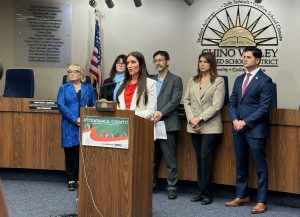The Alabama Supreme Court recently ruled in favor of preborn child in a wrongful death lawsuit involving mother Kimberly Stinnett and OB/GYN Dr. Karla Kennedy, M.D. Although this lawsuit may sound unusual, wrongful deaths do occur unfortunately, if this is something that has happened to you then you should check out someone like this Orange County wrongful death attorney who can help you if you have been the victim of a wrongful death. Stinnett’s wrongful death started when she had experienced fever and cramping early in her pregnancy and was advised to go to the emergency room, where Dr. Kennedy (who was standing in for her regular physician) saw her. Mrs. Stinnett had previously experienced an ectopic pregnancy, and after learning this “Kennedy performed a dilation and curettage procedure to help determine whether the pregnancy was intrauterine or ectopic, and suspecting an ectopic situation, she administered methotrexate, which the court noted is “intended to cause the end of the pregnancy.””
However, when Kimberly’s regular physician, Dr. William Huggins returned and examined her, he concluded that her pregnancy had been intrauterine after all, and was now failing, likely due to the methotrexate. Stinnett soon miscarried and subsequently sued Kennedy, who emphasized that she had only been “following protocol,” claiming that the pregnancy was already failing. The trial court dismissed the case, in favor of Dr. Kennedy, on lack-of-proof of causation grounds.
There was a stark difference of opinion when the case later advanced to the Alabama Supreme Court. Liberty Counsel reports:
The Alabama Supreme Court declared that Stinnett v. Kennedy may proceed, stating that unborn children are human beings and are entitled to legal protection. The court largely based its decision on an amendment in Alabama’s Homicide Act, which “changed the definition of a ‘person’ who could be a victim of homicide to include ‘an unborn child in utero at any stage of development, regardless of viability.” Alabama Supreme Court Justice Thomas Parker also wrote a concurring opinion, noting that the “viability” standard in Roe v. Wade is faulty.
Justice Parker wrote, “Unborn children, whether they have reached the ability to survive outside their mother’s womb or not, are human beings and thus persons entitled to the protections of the law—both civil and criminal. Members of the judicial branch of Alabama should do all within their power to dutifully ensure that the laws of Alabama are applied equally to protect the most vulnerable members of our society, both born and unborn,” Parker said.
This case is certainly a win for pro-lifers and preborn children everywhere in the U.S., as Alabama is the seventh state (joining Illinois, Louisiana, Missouri, Oklahoma, South Dakota, and West Virginia) “to allow wrongful-death actions before the pre-born child becomes viable.” Steve Crampton, a Mississippi attorney and candidate for the state Supreme Court last year, agrees, telling LifeSiteNews:
“By recognizing the preborn child as a person and allowing a civil lawsuit seeking damages for the wrongful death of the child even before viability to proceed, the Alabama Supreme Court has once again taken the lead in attempting to restore some degree of respect for our courts and faith in our judicial system.”
With Alabama taking such a strong pro-life stance, Americans can be hopeful that courts everywhere will begin to recognize and protect the rights of the preborn, respecting the truth that every life has value no matter the circumstances.










